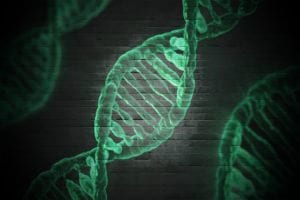In a recent article appearing in BioPortfolio, Orphan Technologies announced a Phase 1/2 clinical trial involving the first Classical Homocystinuria (HCU) patients to be treated with OT-58. Twelve patients were enrolled as of January 2019.
Homocystinuria
Homocystinuria is a disease that causes debilitating symptoms such as skeletal, cardiovascular, neurologic, and ophthalmic complications due to elevated levels of the amino acid homocysteine .
Classical Homocystinuria (HCU)
Classical Homocystinuria is a rare inherited metabolic disorder that exhibits increased blood and urine concentration of the amino acid homocysteine.
HCU is caused by a deficiency in the enzyme cystathionine beta synthase (CBS). The CBS enzyme is part of a multistep process that converts the amino acid methionine to homocysteine and finally to cysteine.
The body produces the amino acid homocysteine by chemically altering adenosine. Homocysteine is then converted to the amino acid methionine, which is used by the body to make proteins and other vital compounds. Amino acids are called “the building blocks” of proteins in the body.
Symptoms may be mild for some affected patients, while the disease may have life-threatening complications for others. The four most common areas affected are the central nervous system, the eyes, skeleton, and the vascular system.
Data received by Orphan Technologies shows that newborn screening generally misses an HCU diagnosis. This means the number of cases may be substantially higher than previously reported.
The Standard of Care for HCU
The standard of care for decades has been a diet that restricts protein and encourages the use of dietary supplements. It is difficult to adhere to this regimen over a long period of time. The results, therefore, are inadequate metabolic and disease control which causes serious medical complications. Clinical data suggests that the current standard of care for HCU does not lower homocysteine to levels that will prevent the disease from advancing.
Indications are that OT-58 may provide a beneficial shift in therapy for patients with elevated levels of homocysteine.
About the Clinical Trial
The Phase 1/2 clinical trial enrolled a total of 12 patients (ages 12 to 65) who will be the first Classical Homocystinuria patients to be treated with OT-58. OT-58 is a novel, engineered enzyme therapy designed to reduce plasma and tissue homocysteine levels.
The trial is designed so that neither investigators nor patients, who are randomly assigned, know which group will receive either OT-58 or a placebo. This type of trial is known as a randomized, double blind and placebo-controlled clinical trial.
The goal of the trial is to assess absorption, distribution, metabolism, excretion and the range of tolerability of OT-58 in the body. The drug is being administered subcutaneously (under the skin).
OT-58 therapy includes a modified version of the CBS enzyme. This novel approach is designed to introduce the CBS enzyme into circulation thus reducing homocysteine levels and increasing CBS levels. The final result is expected to be a normalization of cysteine levels.
About the Homocystinuria Natural History Study
Orphan Technologies is conducting a parallel study which is the first natural history study of patients with classical homocystinuria. The group will be followed over a three-year period to see how the disease is managed under the standard of care. This will also aid researchers who are developing a treatment for the disease.
The natural history study is investigational only and will not involve medication.
About Orphan Technologies
Orphan Technologies is dedicated to the development of OT-58, its lead drug. OT-58 shows promise not only for classical homocystinuria but it may have therapeutic value in other diseases. The company is also in the process of developing additional novel therapies. Its lead indication is in classical homocystinuria with the goal of helping patients manage their homocysteine levels. For more information, please visit the company’s website at www.orphantechnologies.com.
Share your stories, thoughts, and hopes with the Patient Worthy community!






